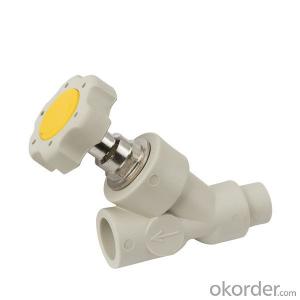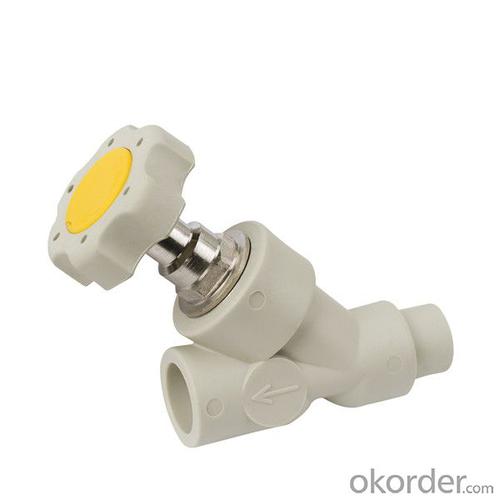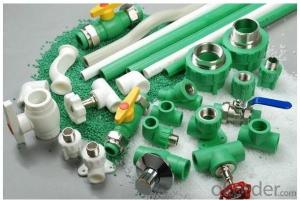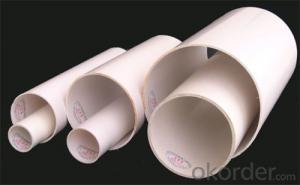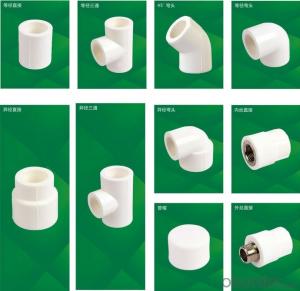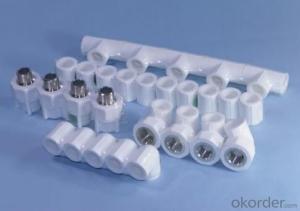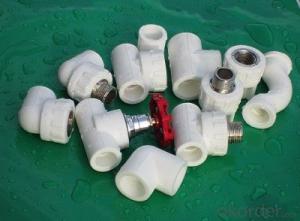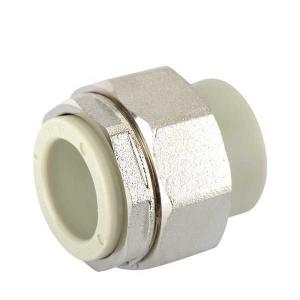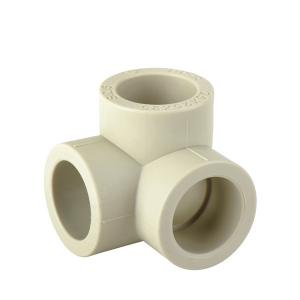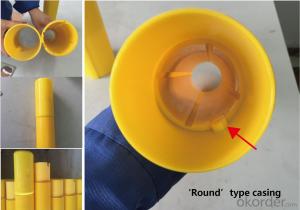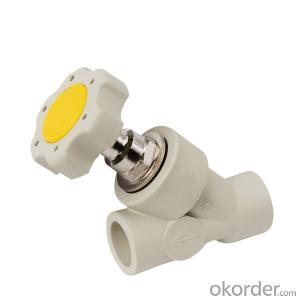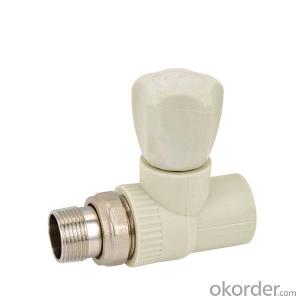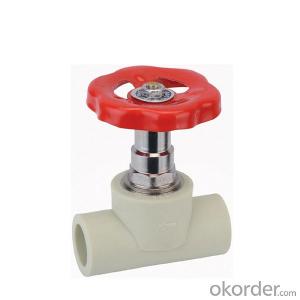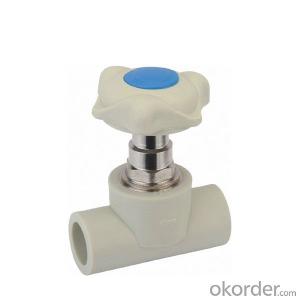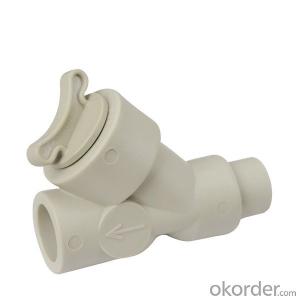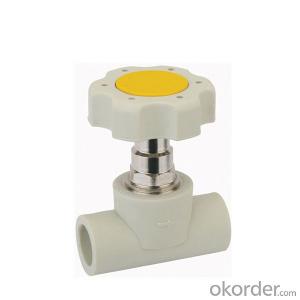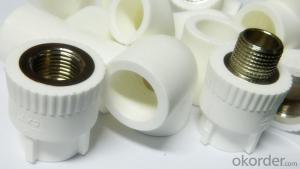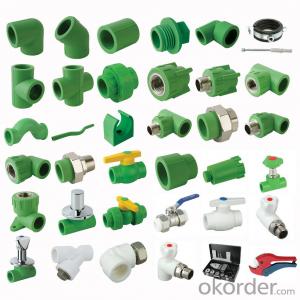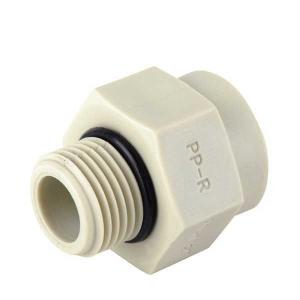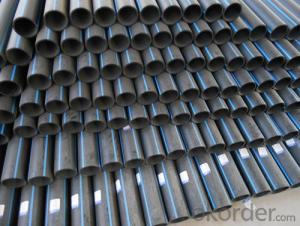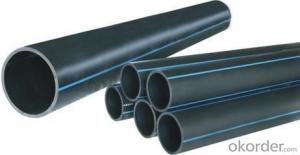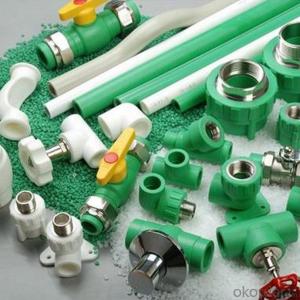Plastic Pipe Fittings Dimensions Y Type Stop Valve-Male SPT Brand
- Loading Port:
- Ningbo
- Payment Terms:
- TT OR LC
- Min Order Qty:
- 1000 pc
- Supply Capability:
- 100000 pc/month
OKorder Service Pledge
OKorder Financial Service
You Might Also Like
Specification
Picture:
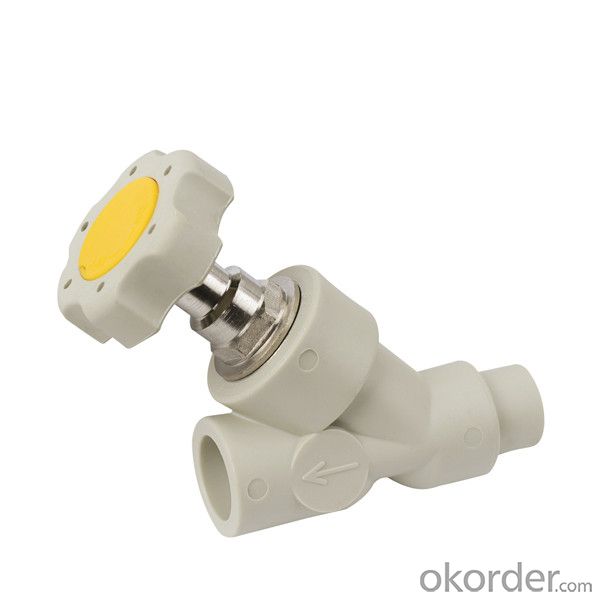
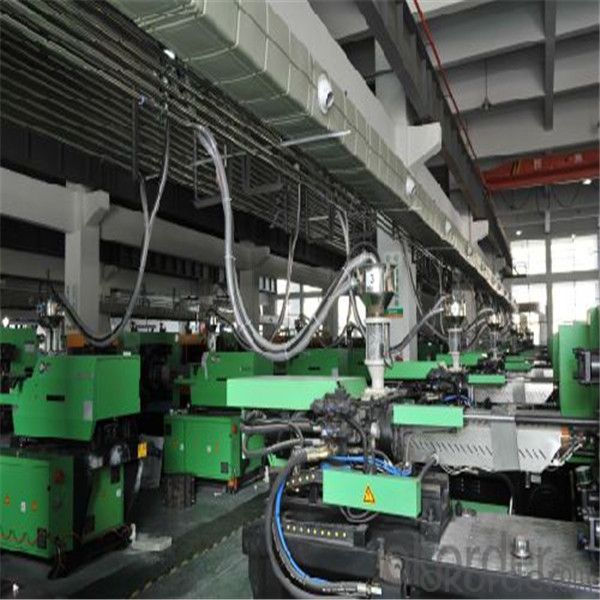
Product Applications:
Distribution for cool and hot water
Duct for drinkable water system
Pipes for kinds of high-temperature and low-temperature heating system
Pipes for heating and coolling settings in solar energy system
Connecting pipe for air conditioners
Product Advantages:
1) Healthy, bacteriological neutral, conforming to drinking water standards
2) Resistant to high temperatures, good impact strength
3) Convenient and reliable installation, low construction expenses
4) Excellent heat-insulation property from minimum thermal conductivity
5) Lightweight, convenient to transport and handle, good for labor-saving.
6) Smooth inner walls reduce pressure loss and increase flow speed
7) Sound insulation (reduced by 40% compared to galvanized steel pipes)
8) Light colors and excellent design ensure suitability for both exposed and hidden installation
9) Recyclable, environment-friendly, accords with GBM standards
FAQ:
Q1:How Can I Get A Sample?
A1:You can get samples by communicate with our export sales.
Q2:How Long Is Delivery?
A2:Delivery time will be30-45days according to order quantity.
Q3:What Is The MOQ?
A3:MOQ depends on different items.
Q4:What Is Our Normal Payments Terms?
A4:Our normal payment terms now is: T/T, L/C or western union,paypal
- Q: Are plastic pipe fittings suitable for hot water applications?
- Yes, plastic pipe fittings are suitable for hot water applications. They are commonly made from materials such as PVC, CPVC, or PEX, which have high temperature resistance and can withstand the heat of hot water systems. Additionally, plastic pipe fittings are lightweight, easy to install, corrosion-resistant, and cost-effective, making them a popular choice for hot water plumbing projects.
- Q: How do you repair a broken plastic pipe fitting?
- To repair a broken plastic pipe fitting, you can follow these steps: 1. Begin by turning off the water supply to the pipe to prevent any leakage or further damage. 2. Use a utility knife or PVC pipe cutter to cut out the damaged section of the pipe. 3. Ensure that the cut ends of the pipe are clean and free from any debris. 4. Take a new plastic pipe fitting of the same size and material as the original one. 5. Apply PVC primer to the outside of the pipe and the inside of the fitting, following the manufacturer's instructions. 6. Apply PVC glue to both the pipe and the fitting and quickly join them together, twisting slightly to ensure an even bond. 7. Hold the joint firmly in place for a few seconds to allow the glue to set. 8. Wipe away any excess glue and let the repair cure as per the manufacturer's guidelines. 9. Once the glue is fully cured, turn the water supply back on and check for any leaks. 10. If there are no leaks, the repair is successful, and the pipe fitting is now fixed.
- Q: Are plastic pipe fittings resistant to UV discoloration?
- Yes, plastic pipe fittings are generally resistant to UV discoloration. Many plastic materials used in pipe fittings are specifically designed to withstand exposure to sunlight and UV rays without discoloring or degrading. However, it's important to note that the level of UV resistance can vary depending on the specific type of plastic used. It is recommended to check the manufacturer's specifications for UV resistance before selecting plastic pipe fittings for outdoor applications.
- Q: Can plastic pipe fittings be used in chemical processing systems?
- Yes, plastic pipe fittings can be used in chemical processing systems. Plastic materials such as PVC, CPVC, and polypropylene are commonly used in chemical processing due to their resistance to corrosion, chemicals, and high temperatures. Additionally, plastic pipe fittings are lightweight, easy to install, and cost-effective, making them suitable for various applications in chemical processing systems. However, it is crucial to choose the appropriate plastic material that is compatible with the specific chemicals and operating conditions of the system to ensure safety and reliability.
- Q: Are plastic pipe fittings suitable for desalination plants?
- Yes, plastic pipe fittings are suitable for desalination plants. Plastic pipe fittings are corrosion-resistant, lightweight, and have excellent chemical resistance, making them ideal for use in desalination plants where they are exposed to harsh saline environments. Additionally, plastic pipe fittings are easy to install, require minimal maintenance, and have a long service life, making them a cost-effective choice for desalination plants.
- Q: Can plastic pipe fittings be used for irrigation systems in cold climates?
- Yes, plastic pipe fittings can be used for irrigation systems in cold climates. Plastic fittings are known for their durability and ability to withstand freezing temperatures. However, it is important to choose fittings made from materials that are specifically designed for cold weather conditions, such as PVC or polypropylene, to ensure they do not crack or break due to freezing temperatures. Additionally, proper insulation and drainage techniques should be employed to prevent water from freezing inside the pipes and causing damage.
- Q: Can plastic pipe fittings be used for CO2 capture systems?
- Yes, plastic pipe fittings can be used for CO2 capture systems. Plastic pipes and fittings are commonly used in various industrial applications, including CO2 capture systems. They offer advantages such as corrosion resistance, ease of installation, and cost-effectiveness. However, it is important to ensure that the plastic material chosen is compatible with CO2 and can withstand the relevant pressure and temperature conditions in the system.
- Q: How are plastic pipe fittings different from metal pipe fittings?
- Plastic pipe fittings are different from metal pipe fittings mainly in terms of material composition and flexibility. Plastic fittings are made from durable thermoplastic materials like PVC or CPVC, offering resistance to corrosion, chemicals, and rust. They are relatively lighter in weight, easier to install, and require minimal maintenance. On the other hand, metal pipe fittings, usually made from materials like brass, copper, or stainless steel, are known for their high strength and durability. They can withstand higher pressures and temperatures compared to plastic fittings but may be susceptible to corrosion in certain environments. Additionally, metal fittings are often more expensive and require specialized tools for installation.
- Q: Are plastic pipe fittings resistant to fungal growth?
- Yes, plastic pipe fittings are generally resistant to fungal growth.
- Q: Can plastic pipe fittings be used for wastewater treatment systems?
- Yes, plastic pipe fittings can be used for wastewater treatment systems. Plastic pipes and fittings are often preferred in these systems due to their corrosion resistance, durability, and cost-effectiveness. They can effectively handle the transportation of wastewater and are compatible with various treatment processes, making them a suitable choice for wastewater treatment systems.
Send your message to us
Plastic Pipe Fittings Dimensions Y Type Stop Valve-Male SPT Brand
- Loading Port:
- Ningbo
- Payment Terms:
- TT OR LC
- Min Order Qty:
- 1000 pc
- Supply Capability:
- 100000 pc/month
OKorder Service Pledge
OKorder Financial Service
Similar products
Hot products
Hot Searches
Related keywords
